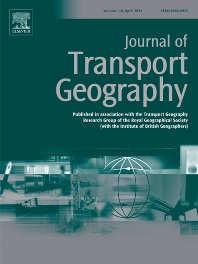Journals in Geography planning and development
Journals in Geography planning and development
- ISSN: 0197-3975
- 5 Year impact factor: 7.1
- Impact factor: 6.5
Habitat International

- ISSN: 0738-0593
- 5 Year impact factor: 2.5
- Impact factor: 2.8
International Journal of Educational Development

- ISSN: 0147-1767
- 5 Year impact factor: 2.7
- Impact factor: 2.4
International Journal of Intercultural Relations

- ISSN: 0305-7488
- 5 Year impact factor: 1.2
- Impact factor: 1.3
Journal of Historical Geography

- ISSN: 0743-0167
- 5 Year impact factor: 5.5
- Impact factor: 5.1
Journal of Rural Studies

- ISSN: 0966-6923
- 5 Year impact factor: 6.2
- Impact factor: 5.7
Journal of Transport Geography

- ISSN: 0264-8377
- 5 Year impact factor: 6.5
- Impact factor: 6
Land Use Policy

- ISSN: 0169-2046
- 5 Year impact factor: 8.7
- Impact factor: 7.9
Landscape and Urban Planning

- ISSN: 2950-0249
Latin American Transport Studies

- ISSN: 0308-597X
- 5 Year impact factor: 3.9
- Impact factor: 3.5
Marine Policy

Related subjects
Cultural geography
Development
Economic geography
Environmental change
Environmental studies
Geographical information systems
Geography general
Historical geography
Human geography general
Marine geography
Medical geography
Natural hazards
Political geography
Rural geography
Social geography
Urban and regional planning general
Urban geography
Urban studies